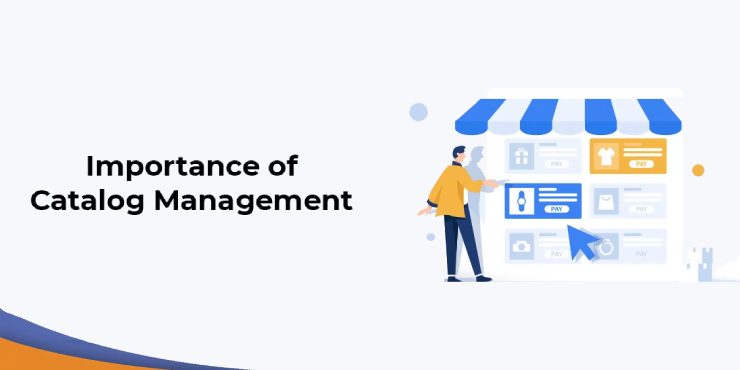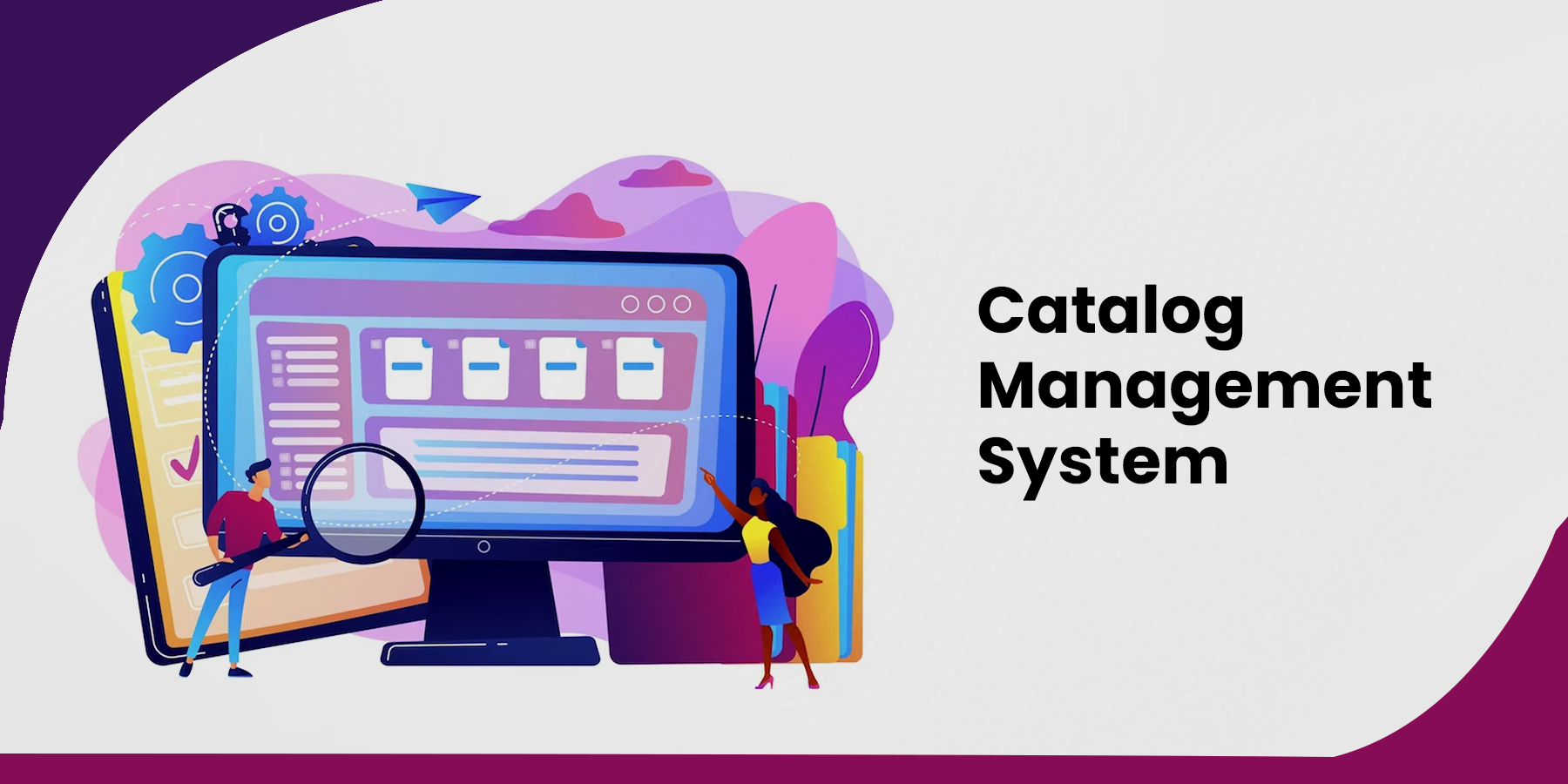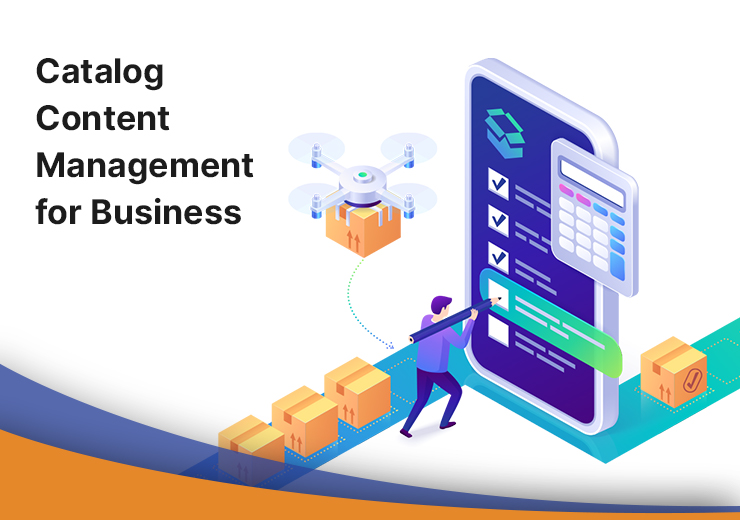
Incorporating and utilizing reliable eCommerce catalog management in today’s retail world cannot be over-emphasized. As you battle your way to turning your store into a raging success, a well-detailed and structured product catalog management is all you need to attain victory.
Why Do You Need Ecommerce Catalog Management?
Effective product catalog management means distributing adequate information about your customer’s chosen products. You can unlock doors to many opportunities and keep yourself afloat in the market competition.
As a case study in an article published in Harvard Business Review, the yearly cost of poor-quality data in the US alone amounts to $3.1 trillion. That’s the extent to which poor data can damage business revenue. But the good news is that you can avoid such a fate.
In this blog, we have discussed the importance of taking advantage of effective eCommerce catalog management. But before we dive in, let’s quickly zoom in and look at some of the challenges often faced in executing effective eCommerce catalog management.
Challenges of Catalog Management in eCommerce
The challenges in eCommerce catalog management can be enormous for many different reasons, which include:
- In eCommerce catalog management, it is effortless for your product data to get messy and inconsistent, especially if you are a multi-channel seller.
- You can decide to settle for subpar product information if your catalog management system needs to be adequately outlined, which can affect your sales and customer satisfaction.
- Updating your products constantly can pose a serious challenge if you are operating on multiple channels.
- In eCommerce catalog management, you must deal with variations and misspellings in supplier data because suppliers need more or less regard for effective catalog management.
- Also, the catalog size concerns the number of products and SKUs.
- The freshness of data: how recent is your data? Data is good, but only if it is recent.
 The Importance of eCommerce Catalog Management
The Importance of eCommerce Catalog Management
Maintaining efficient eCommerce catalog management is critical to building your business. It is the most fundamental aspect of a retail enterprise. If you can commit the time, effort, and resources required to manage your product catalog properly, you will be glad you did.
Below are some reasons we think eCommerce Catalog Management is essential:
Omni-Channel Experience
The product catalog is the building block of an omnichannel strategy. As a result, a consistent catalog management system across different channels helps customers establish a strong connection with your products. Therefore, they can easily recognize your fingerprints in the product listing without checking for the seller’s information. Going between channels like this will strengthen your overall omnichannel experience and help boost your strategy.
Improve Customer Experience
In a survey conducted among online adult sites in the US, 30% said they would consider buying a product from an unknown retailer with detailed product information rather than one that doesn’t. This affirms that a good customer experience is critical in a retail business.
By creating and imbibing a rich and detailed product information service that is readily available, easy to find, and user-friendly, you can be sure of beating your competitor’s hands down.
Create Rich And Consistent Product Information
One of the benefits of product catalog management is that you get to maintain rich and consistent information across your sales channels. With access to quality data, you would have conquered inconsistency in spelling and information gathering, a common plague in product listings. Also, sooner or later, you would have had product information entirely attributed to you.
Improve Business Growth
There is no denying that product catalog management helps create a solid foundation for business expansion. With a brilliant eCommerce catalog management strategy, you can quickly expand your business and dominate the market. As a matter of fact, with a proper structure in place, you can easily add different SKUs without feeling overwhelmed or consumed.
Read this blog to learn the best practices in ecommerce catalog management: What are the Good Practices in eCommerce Catalog Management
 Aspects To Consider Before Outsourcing Catalog Management Services To A Partner
Aspects To Consider Before Outsourcing Catalog Management Services To A Partner
As an eCommerce business owner, it is ideal to outsource catalog management services for your business. Before you do this, there are a few aspects that you must pay attention to. One of them, the outsourcing service provider, follows good practices in eCommerce catalog management.
In the next section of our blog, we will discuss a few best practices in eCommerce catalog management. Let’s dive in!
1. The Product Catalog and Website Should Be SEO Friendly
It is known that several vendors are selling the same range of products and services. Thus, the end users are spoilt for choice. Against this backdrop, eCommerce business owners leave no stone unturned to ensure their website and catalog rank highly on search engine result pages.
To stay ahead of the competition, eCommerce business owners are also doing all they can to make their business website and catalog Search Engine Optimization (SEO) friendly so that they rank high on search engine result pages.
One of the ways to achieve this is to write copies that are;
- Grammatically correct
- User-friendly
- Up-to-date with information,
- and, searchable.
eCommerce business owners know a Google-friendly website will help top the SERP and divert more organic traffic. Thus, it is essential to ensure that the eCommerce website is SEO-friendly.
2. Make Sure the Product Information Management System (PIMS) has Adhered To
Experts agree that a Product Information Management System (PIMS) goes a long way in simplifying the eCommerce catalog management process. Also, implementing the PIMS rules out various issues like dealing with multiple spreadsheets across multiple divisions.
Furthermore, PIMS helps retailers standardize and customize product information. Additionally, with PIMS, retailers can list the same product on different channels. Such is the importance of the PIMS. Thus, adhering to the PIMS is regarded as one of the best practices for eCommerce catalog management.
3. Product Information Should Be Uniformly Displayed
Customers do a lot of research before they purchase any product. It is an excellent idea to establish uniformity in the product description. This will go a long way in winning the consumer’s trust, which can result in the consumer purchasing the product or service from the particular vendor.
Also, when a vendor does not maintain uniformity in the product description, it will confuse the user, who could be viewing information about the product across multiple channels.
4. Write Product Descriptions That Are Unique, Attractive, and Original
One of the best practices in catalog management services is ensuring that the product descriptions are to the point, unique, attractive, and original. You can support the product description with images that match the content (text). The image can be high resolution. As well as use self-explanatory videos that support the product description, depending on the needs.
Wrapping Up
Outsourcing catalog management services is an excellent way to manage this aspect of the business. So, if you’re looking for a trusted partner to help manage your eCommerce catalog, Vserve eBusiness Solutions can double up as just that.
Your eCommerce catalog is the window that can either persuade consumers to purchase products or turn them away, and Vserve understands the importance of every customer.
Our professionals can help with appropriate categorization, catalog management, and product descriptions, ensuring customers can easily find the relevant products they’re searching for.
Outsourcing eCommerce catalog management to Vserve means you can easily handle intricate data and minimize errors. You can stay on top of the game with our product catalog management services.
Contact our team of experts to get started with Vserve’s catalog management services.








